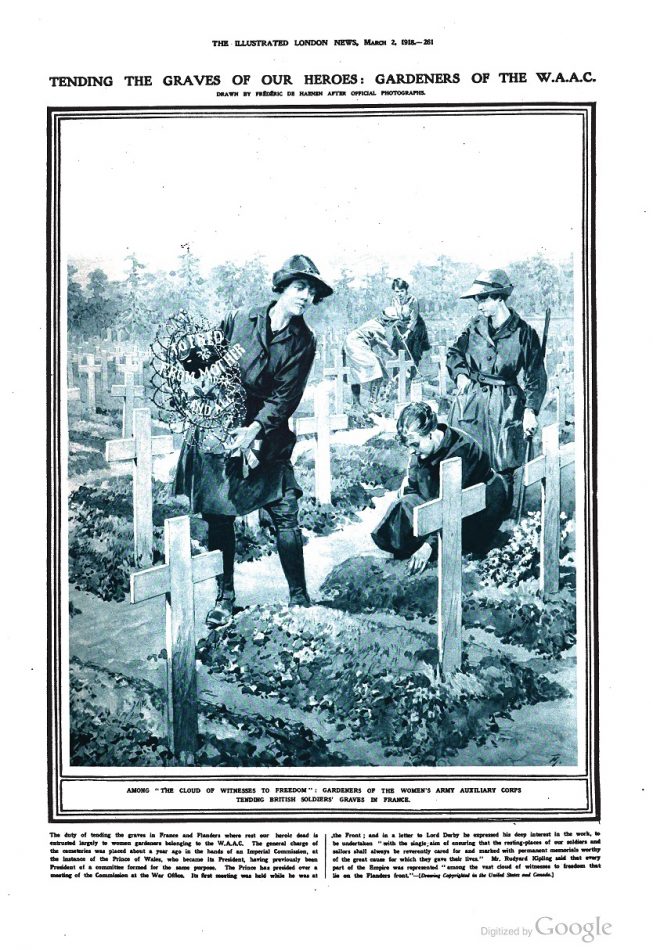
Gardeners of the Women’s Army Auxiliary Corps tending British soldiers’ graves in France, 1918
[The WAACs] look after the gallant dead, who are lying in the soil for which they fought. Between the pines and the gleaming river with its sandy shoals are the rows of crosses, sparkling, the ash grey wood of them, in the effulgence of the spring light, making hundreds of points of brightness above the earth still brown and bare, that soon, under the gardeners’ care, will blossom like the rose. Not a desert even now—for no place where fighters rest is a desert—but a place expectant, full of the promise of beauty to come, an outward beauty which is what it calls for as its right, because it is holy ground. Not only in the merely technical sense as the consecrated earth of quiet English cemeteries, where lie all, both those who lived well and those who lived basely, but holy as a place can only be when it is held by those who all died perfectly . . .
Here and there, among the earth-brown graves, stooping above them, are the earth-brown figures of the gardeners. Every grave is freshly raked, moulded between wooden frames to a flat, high surface where the flowers are to overflow, and above every raised dais of earth the bleached wood of the cross spreads its arms, throwing a shadow soft and blue like a dove’s feather, a shadow that curves over the mound and laps down its edge lightly as a benison. On each cross is the little white metal plate giving the name and regiment of the man who lies beneath and the letters R.I.P. Here and there is an ugly stiff wreath of artificial immortelles beneath a glass frame, the pathetic offering of those who came from England to lay it there.
Sometimes a wreath fresh and green shows that someone who loves the dead man has sent money with a request that flowers shall be bought and put upon his grave on the anniversary of his death. Sometimes, when they come over from England, these poor people break down and turn blindly, as people will for comfort, to the nearest sympathy, to the women gardeners who are showing them the grave they came to see. And a sudden note of that deep undercurrent which at times of stress always turns the members of either sex to their own sex for comfort sends the women mourners to the arms of the women who are working beside them. Sentiment, if you will—but a sentiment that is stirred up from the deep and which would scorn the apologies of the critical.
— The Sword of Deborah: First-hand Impressions of the British Women’s Army in France by F. Tennyson Jesse (1919)
The post WWI Wednesday: The Care of the Dead appeared first on Edwardian Promenade.